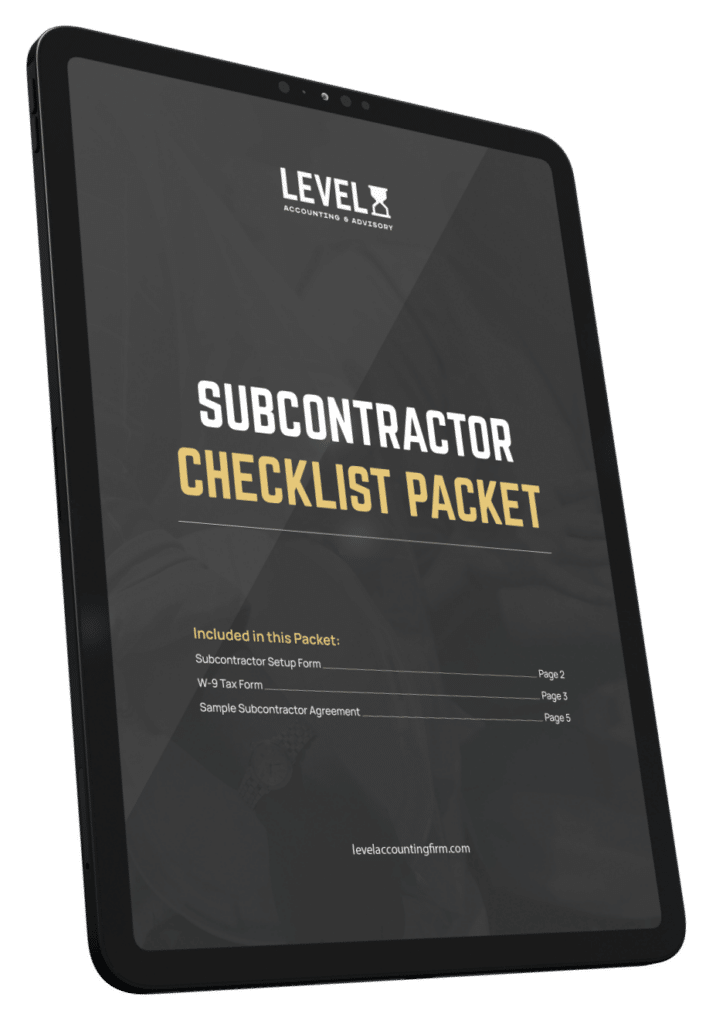Understanding Cash vs Accrual Accounting: The Basics
At its core, the debate between Cash vs Accrual Accounting centers around when you recognize (or ‘count’) revenue and expenses in your financial records. Let’s get into it:
Cash Method Accounting
Under the cash method, you record revenue and expenses when cash actually changes hands. This means:
- Income is recognized when you receive payment, regardless of when you performed the work.
- Expenses are recorded when you pay them, not when you incur them.
For example, if you receive a deposit in January for a project you complete in March, you’d record the income in January under the cash method.
Accrual Method Accounting

The accrual method takes a different approach:
- Revenue is recorded when it’s earned, even if you haven’t received payment yet.
- Expenses are recognized when you incur them, regardless of when you pay.
Using the same example, if you receive a January deposit for a March project, you’d record the income in March under the accrual method.
Pros and Cons: Cash vs Accrual Accounting

Both accounting methods have their strengths and weaknesses. Let’s take a look:
Cash Method Pros:
- Simpler process, ideal for smaller businesses
- Easier to manage day-to-day transactions
- Provides a clear, real-time picture of cash flow
Cash Method Cons:
- Doesn’t provide a full picture of financial performance
- Misses important information like accounts receivable and payable
Accrual Method Pros:
- Offers a more accurate picture of financial performance
- Includes all open balances, providing a comprehensive view
- Allows for more detailed reporting and better insights
Accrual Method Cons:
- Can create tax-related issues due to recognizing income before receiving payment
- More complex, often requiring professional accounting expertise
Making the Right Choice: Cash vs Accrual Accounting
Choosing between Cash vs Accrual Accounting isn’t just about personal preference. Several factors should influence your decision:
- Legal Requirements: Some businesses are required to use the accrual method. Check with your accountant or legal advisor to ensure compliance.
- Tax Implications: The method you choose can significantly impact your tax situation. Discuss with a tax professional to understand the implications for your specific business.
- Business Model: If you manage long-term projects or deal with inventory, the accrual method might provide a more accurate financial picture.
- Cash Flow Patterns: If you often receive large deposits before completing work, the cash method might be more straightforward for tracking actual cash flow.
- Financial Reporting Needs: If you need detailed financial reports for investors or lenders, the accrual method typically provides more comprehensive information.
Key Questions to Consider: Cash vs Accrual Accounting
Before making your final decision between which accounting method to use, ask yourself these important questions:
- Am I required to use a specific method for my business?
- How will each method affect my tax situation?
- Do I manage long-term projects or use job costing?
- Do I regularly receive large deposits before completing work?
- Do I maintain and track inventory?
- Are my accounts payable typically higher than my accounts receivable?
Answering these questions can help guide you towards the most suitable method for your business.
The Impact of Cash vs Accrual Accounting on Financial Statements
Your choice between Cash vs Accrual Accounting will significantly influence how your financial statements look. Here’s a brief overview:
Balance Sheet
- Cash Method: Simpler, but may not include all assets and liabilities
- Accrual Method: More comprehensive, including accounts receivable and payable
Income Statement
- Cash Method: Shows actual cash received and paid
- Accrual Method: Reflects all earned revenue and incurred expenses, providing a more accurate picture of profitability
Cash Flow Statement
- Cash Method: Essentially mirrors the income statement
- Accrual Method: Provides a separate, detailed view of cash movements
Switching Between Cash vs Accrual Accounting
If you start with one method and later decide to switch, be aware that changing between Cash vs Accrual Accounting can be complex. It often requires:
- Adjusting your books to reflect the new method
- Potentially amending previous tax returns
- Obtaining IRS approval in some cases
Due to these complexities, it’s crucial to make an informed decision from the start and consult with a professional if you’re considering a switch.
Industry-Specific Considerations: Cash vs Accrual Accounting
Your industry can play a significant role in determining which method is best:
- Construction and long-term projects: Accrual method often provides a more accurate picture of project profitability.
- Service-based businesses with quick turnaround: Cash method might be simpler and sufficient.
- Retail with inventory: Accrual method is often required and provides better inventory management insights.
Cash vs Accrual Accounting: The Bottom Line
Choosing between Cash vs Accrual Accounting is a significant decision that can impact your business’s financial reporting, tax obligations, and overall financial strategy. While the cash method offers simplicity and is often suitable for smaller businesses, the accrual method provides a more comprehensive financial picture, which can be crucial for larger operations or those seeking outside investment.
Remember, there’s no one-size-fits-all answer in the Cash vs Accrual Accounting debate. Your choice should align with your business’s unique needs, legal requirements, and long-term goals. When in doubt, don’t hesitate to consult with a qualified accountant or financial advisor who can provide personalized guidance based on your specific situation.
Need a professional accounting team to help guide you in these decisions? At Level Accounting & Advisory, we offer full-service, outsourced accounting solutions – specializing in the trades and robust tax planning. Want to learn more? Book a call now.
Like this post? Check out our other blogs:
- 1099 vs W2: What Contractors Need to Know About Hiring
- BOI Reports: Your How To Guide to Filing
- Cash vs Accrual Accounting for Construction Businesses
- 1099s: Everything Contractors Need to Know
- Why Should Contractors Consider an S-Corp Election
- How to Pay Yourself as an S-Corp Owner
- More can be found Here
Disclaimer: This article provides general information and should not be construed as tax, legal, or accounting advice. Always consult qualified professionals for guidance specific to your situation.


